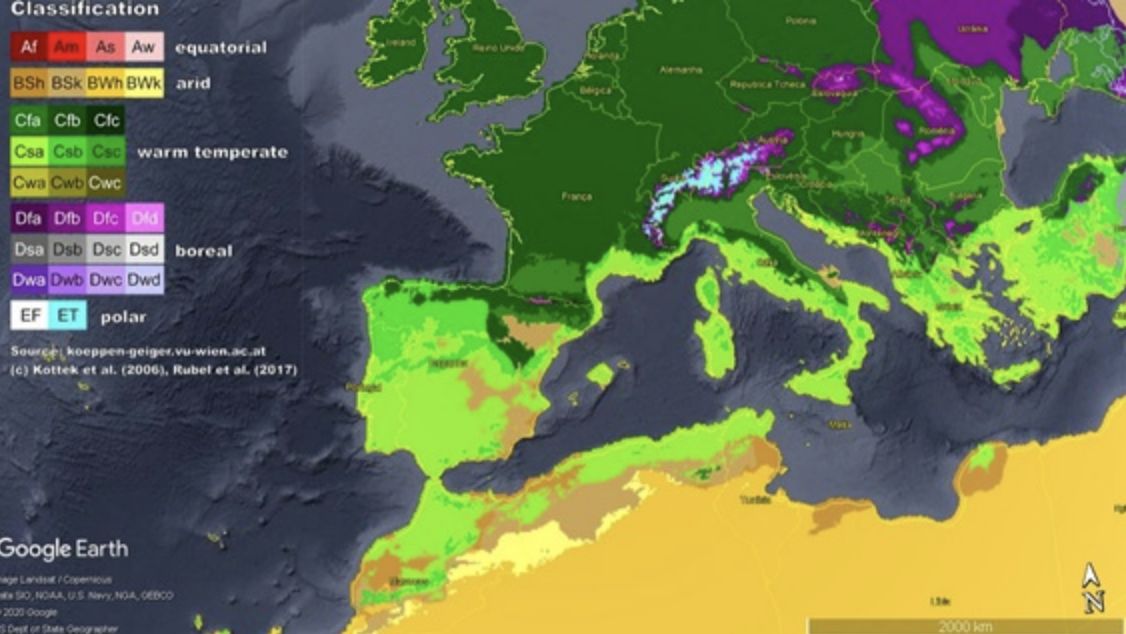
Why move to Portugal?
Why Move to Portugal?
Portugal is a special country in many aspects, and below are some of the benefits arising from its unique location.
Portugal is located in southwestern Europe, specifically in the Iberian Peninsula, has approximately 92 thousand km², bounded to the south and west by the Atlantic Ocean and to the north and east by Spain.

It is a fact that Portugal, Spain, Italy and Greece have the most pleasant climates on the European continent.
In the case of Portugal, its entire surface is located in the region classified as mild according to the Köppen-Geiger classification.
In practical terms, this means that the average temperature in Portugal is approximately 16° C (60.8°F), with averages of 18° C (64.4°F) in the south of the country and 13° C (55.4°F) in the north.
In general, we can summarize the seasons as follows. (Yes there are four Seasons)
Spring in Portugal (March to May)
Pleasant Temperatures reaching 20°C with occasional rain showers.
Summer in Portugal (June to mid-September)
Higher temperatures, which may reach in excess of 40 °C in certain areas, classified as a dry climate.
Autumn in Portugal (mid-September to early December)
Temperatures begin to dip, evenings are cooler, and rainfall increases. The average temperature during the day is a comfortable 22°C, while in the evenings the average low is 14°C.
Winter in Portugal (December to February)
Colder weather, low temperatures (sometimes reaching -2 °C [28.4°F] – in certain areas), rainy weather and winds.
In addition to its climate, Portugal’s social and economic indexes point to the country with a high Development Index (HDI), as determined by the United Nations Development Program (UNDP).
Portugal occupies the 40th position in the human development ranking of 2019.
Some additional interesting data about Portugal
The life expectancy of its inhabitants is 81.9 years, one of the longest in the world.
It has one of the best health systems currently in existence.
It is a member of the European Union (EU); United Nations (UN); North Atlantic Treaty Organization (NATO) and Organization for Economic Cooperation and Development (OECD).
Cost of Living
Questions related to the cost of living in Portugal are quite frequent.
First, in order to answer these questions, it is necessary to mention that, although Portugal is considered a small country in territorial dimension, it has different costs of living depending on the region or District under analysis.
At first, we point out that the smaller the city’s internal structure (considering the circulation routes, health centres, entertainment places, etc.) and the further away from urban metropolises, the lower the cost of living.
As for the first aspect, there are certainly smaller cities in Portugal, where the activities carried out in the region are essentially related to agriculture and also the “tradition” element is very striking and commonplace.
Among them, we can highlight the municipalities of Cinfães, Tabuaço and Celorico de Basto. However, despite not having the structure of large cities, they are considered being peaceful and quiet regions, where people know each other. They are perfect for those who want to escape the hustle and bustle of urban centres. In this sense, Bragança serves citizens who seek this calmer way of life.
Bragança
Portugal also has large urban centres, where corporations (and their qualified professionals), malls and business centres are located.
We all know these regions quite well and we can highlight, among them, the cities of Lisbon, Porto and Faro.
Well, although there is a price difference between these two groups of cities, Portugal has its own characteristic, that is, all costs, except for those relating to the acquisition of real estate, are quite similar regardless of the analyzed city, and they are usually quite low.
Therefore, expenses such as electricity, water, gas, television, internet and food, are all very similar regardless of location.
As for the distance between cities and large urban centres, Portugal stands out for having three cities, located in strategic points:
To the north – Porto, in the centre – Lisbon and to the south – Faro.
So, as it is a relatively small country, no matter where you intend to settle, you will be located relatively close to one of these large cities.
It is precisely for this reason that more and more people are seeking to live not in urban centres, but close to them, considering the need for commuting for work and entertainment.
In this respect, the cities of Braga, Setúbal and Portimão stand out.
In relation to the city of Braga, we can consider the following approximate monthly costs, considering a couple’s life:
500 € – Rent
40 € – Electricity
20 € – Water
15 € – Gas
25 € – Internet
10 € – Cable TV
15 € – Mobile
350 € – Market
80 € – Transport
80 € – Other expenses
Total: 1,135 €
Quality of life
Quality of life can be simplified as the attributes of a particular place that contribute to a peaceful life.
This includes the availability of essential services, such as health and safety, mobility and the basic infrastructure to access these services.
In relation to these requirements, few countries have better conditions than Portugal.
When it comes to health, Portugal has an excellent public service structure, comprising of local health centres and public and private hospitals, capable of serving the entire population.
Information supplied by our Official Legal Partner VIV Europe
